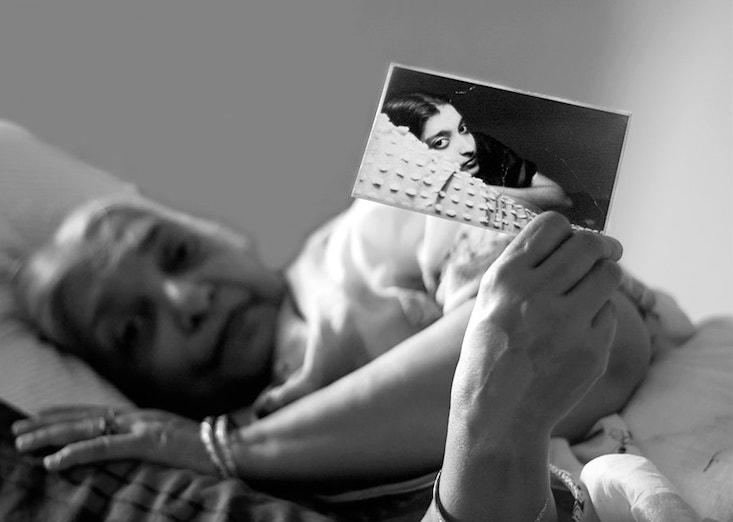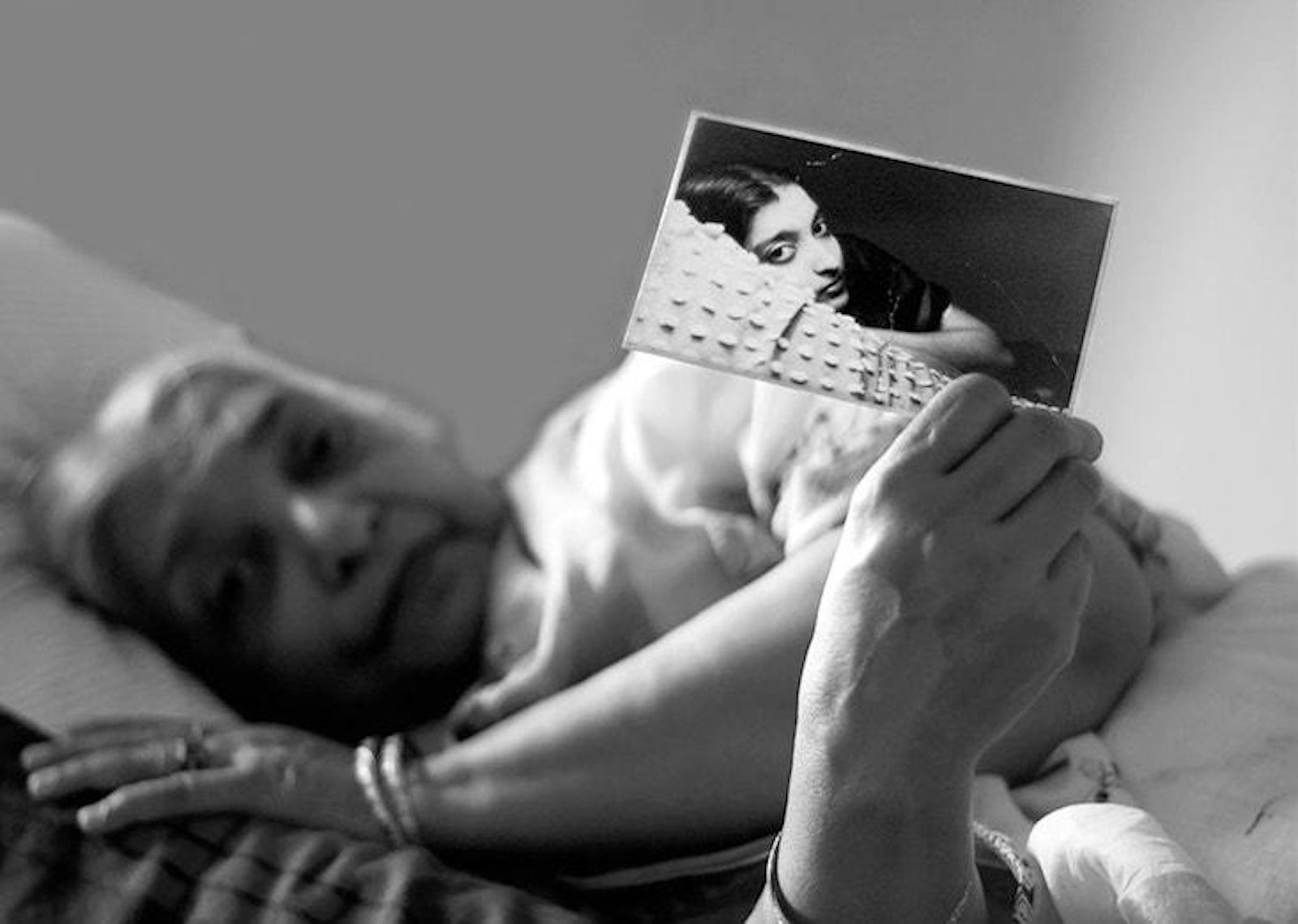
In 2010, Dan McAdams wrote a biography about George W. Bush analyzing the former American president using the tools of personality psychology. It was, in his own words, a flop. “I probably had three readers,” McAdams laughs. But an editor from The Atlantic happened to read it, and asked McAdams to write a similar piece analyzing Donald Trump. It was a hit, attracting 3.5 million readers.
“So something good came out of it,” McAdams tells me. He used the case in class. And, he explains, he has always been interested in politics anyways. “I’m kind of a political junkie going back into the ’60s. That’s my autobiographical reasoning.”
Autobiographical reasoning gets far more sophisticated as you age.
By autobiographical reasoning, McAdams means finding and attaching meaning using your own life history. It’s how he has come to interpret the time he spent writing his book, and it’s part of how all of us build our broader narrative identity—the story of who we are and where we’re going. In his work as a professor of psychology at Northwestern University. McAdams has thought deeply about how we build that identity and how it changes with age.
McAdams spoke to Nautilus from his office in Evanston, Illinois.
What is narrative identity?
It’s a story you’ve got about how you came to be, who you are, and where your life’s going. That’s not your whole identity—there are a lot of other things that are part of your identity—but it’s a really important part, and it’s a neglected part. Narrative identity is just as much about how you imagine the future, even though it hasn’t happened yet, as it is about how you reconstruct the past. If I’m planning to be president of the United States, and I’m currently laboring in academia, well you’re going to have to develop a way to connect up your past with your goals for the future.
When do we begin to develop it?
There’s a lot of research now that shows that in the teenage years we develop skills from what’s called autobiographical reasoning—which is the ability to derive personal meaning from your past—and that’s really the key to narrative identity. When you start doing that in your teenage years, then that kind of opens up a Pandora’s box that says “okay now you can actually create a story for your life that makes meaning about who you were and where you’re going.” Kids have memories going back probably to age 4. They can tell stories early on, they learn, but they don’t see their lives in big narratives that they are the main protagonists of.
As people get older they just don’t want to remember negative stuff, and they just forget it.
What governs our identity as kids?
Early in life we begin as social actors, and that’s where you see people’s temperament traits—their personality traits, basic dispositions like extroversion and conscientiousness. Most personality psychologists study those dimensions because they’re really important in terms of how we perform our roles and how we behave as social actors. The first layer keeps developing, but then the second layer kind of chips in sometime maybe in elementary school, where we start to think about our lives prospectively in terms of goals. Not big goals necessarily—the little things like “I know today I’ve got to go to social studies class.” An 8- and 9-year-old also plans, and out of the plans develops a second layer of personality, what I call the motivated agent, and that refers to our long-term goals, and values, and strategies for achieving those things. In the teenage years and later, the third layer kicks in and that’s what I call the autobiographical author. That’s where we get the life story.
How does age tend to change our identity?
At the social actor and basic traits [layer], there’s strong evidence to suggest that there’s an increase in traits related to conscientiousness and agreeableness, so people become somewhat more dutiful, and hardworking, and conscientious on the one hand, and somewhat warming, and caring, and empathic on the other. Now let’s go to the agent. Early on in life, let’s say late teens to early adulthood, people’s goals tend to be more what’s called “promotion focused goals.” Their goals are about attaining stuff—rewards, education, friends. But there’s a tipping point somewhere in your 40s or 50s where you start to move toward what are called more “prevention focused goals.” And prevention focused goals are about holding on to what you have or compensating for losses. And then you have the autobiographical author. There’s a couple things that we find. Autobiographical reasoning gets far more sophisticated in general as you age. And the second thing is that life stories, especially after 50, tend to become more positive, and sometimes a little simpler too. It’s like early on in life we do Dickens or Dostoevsky, and later we do simpler stories that are maybe easier to follow. It’s sometimes called the positivity bias in aging.
Why do we become more positive with age?
As people get older they just don’t want to remember negative stuff, and they just forget it. And they’ll say, “Yeah okay it was really bad, my mom beat me and everything, it was horrible. But actually, really maybe it wasn’t that bad, she was under stress, and it was tough on her. And you know, I’ve turned out okay, and I’m going to accentuate the positive.” Now, you can do that at any age but people tend to do that kind of thing more as they move into their 50s and 60s.
Laura Carstensen at Stanford has also written about this. She has this theory called socioemotional selectivity theory, and it tries to explain the positivity bias in terms of the realization people have that they don’t have a lot of time left in life. As you get older, and the end is approaching, it’s like, “what good is it going to do me to obsess over all the negatives” and so forth, and “maybe it’s better for me to focus on the positive.” People also tend to reign in their investments a bit. As I get older I’m going to really focus on the things that matter the most, my family probably, close relationships, friendships. I think that contributes to the positivity bias and to the simplification of life’s stories.
Now there is another line of thinking that tries to explain these things at the level of the brain, suggesting that there are changes in the brain that may partly explain the positivity bias. One piece of research I read recently suggested as we get older the connection between the amygdala (which gets activated in strongly negative emotional situations) and the hippocampus (which sort of notes that the amygdala is firing and makes a memory out of it) degrade a little bit. Therefore, the tendency to create memories about negative events is lessened.
Are there good and bad narrative identities?
What my research tends to show is that there are certain kinds of narrative identities that are associated with positive outcomes. It’s not narrative identity per se—it’s the kind of narrative identity. The big theme in that work is the idea of redemption stories. We find again and again in our research that people who are generative adults, adults who are making a positive difference for the next generation, promoting the well-being of others, and also who are enjoying relatively good psychological health, these kinds of people, at least in American society, in our midlife years tend to tell these highly redemptive stories about their lives. The form is a kind of narrative arc, whereby suffering, negative events, and defamation lead to positive outcomes and enhancement. There are many models for that in American society, rags to riches stories, the American dream, stories of religious atonement, stories of upward mobility, liberation. There are many metaphors we use for those kinds of narratives, but they’re all redemptive in a sense that some positive comes out of a negative and your life is sort of redeemed.
Are the memories we use to construct our narrative identity always true?
The past is always up for grabs. There’s never a final accounting of it, and yet we’re constrained by what’s actually happened, and what people will believe, and how you see your past, and so forth. But it’s not completely constrained, and there’s a lot of imaginative things you can do. So you live your life and you collect material as you’re going along for your life’s story and you’ve always got this material, but you could reshape it—you can rewrite it. It could be a problem, but it’s also an opportunity. I think we’ve evolved not to have perfect memory but to have strategic memory, memory that helps us accomplish our goals and so forth. We all grow up in a certain culture and we learn how to tell stories, and what’s a convincing story. Cultures differ on that.
Is narrative identity a recent evolutionary trait?
Before there was language, which is a relatively recent emergence maybe 50,000 to 100,000 years ago, people had ways to communicate with each other through pantomime and grunts. And narrative can be done that way. I think it goes to our being social creatures, you probably go back a couple million years and you have people enacting narratives in groups. But self-narratives—autobiographical reasoning and all that—that’s different. Perhaps we have always had the skills to do that, but they don’t really develop unless you have a culture that gives them an opportunity and kind of demands them.
Let’s go back 3,000 years to Egypt under one of the pharaohs. Did the common woman and man in the street working on the pyramids—did they actually have life stories? I don’t know. I think they told stories about their lives, but did they have narrative identities—were they encouraged to think about how they came to be, who they are, and where their lives are going? That’s a pretty sophisticated thing. Maybe it requires a certain amount of leisure and a certain amount of—I don’t know—modernity there to kind of kick start that. I think it comes with a certain amount of enlightenment; you sort of see intimations of it in Aristotle when he’s talking about how the wise man is able, later in life, to get some distance on things and try to make sense of what’s for the good, what’s rational, and so on. He’s kind of inching in the direction of our being self-reflective beings who are able to create meaning out of our lives. He doesn’t say it that way, but he’s moving in that direction, but that’s, what, 2,500 years ago or so. That’s pretty recent, isn’t it?
Matthew Sedacca is a writer based in New York who covers stories about science, food, and culture. Follow him on Twitter @matthewlevine13.
This article was originally published in June 2017 in Nautilus Aging.






























